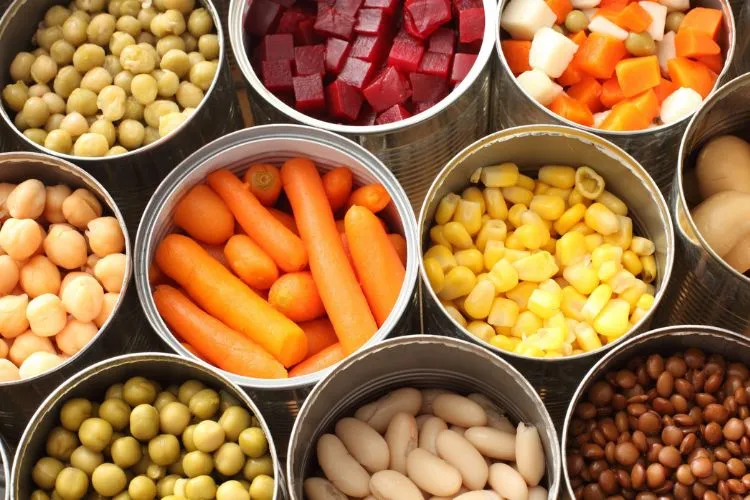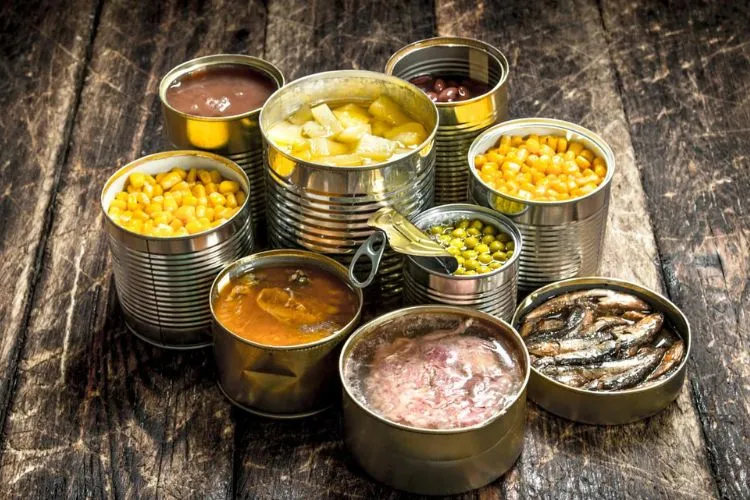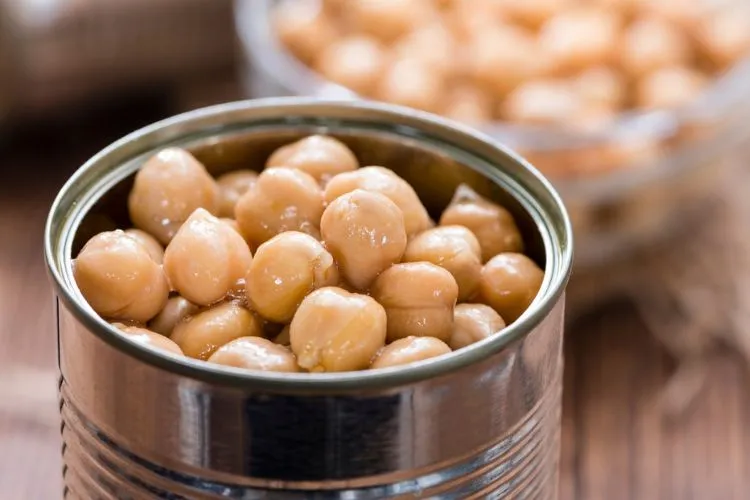The convenience of canned food is unmatched. It offers a shelf-stable option that can last for years.
But, there’s a common question that often arises: should canned food be heated?
This guide explores various aspects of canned food, including safety, nutritional content, and taste considerations.
Should Canned Food Be Heated?
Yes, canned food should be heated in many cases to improve taste, texture, and safety. Heating can enhance the flavor and make certain nutrients more available.
However, not all canned foods require heating before consumption; some can be eaten straight from the can.

Always follow the product’s heating instructions for the best results. For safety, transfer the food to a suitable container before heating to avoid potential contamination from can linings.
Heating also helps eliminate any harmful bacteria that might have survived the canning process, making it a safer option, especially for high-risk individuals.
Understanding Canned Food
Canning is a method that has been around since the 19th century. It involves sealing food in cans and then heating it to kill harmful bacteria. This process extends the shelf life of food without needing refrigeration.
There are many types of canned foods, from vegetables and fruits to meats and soups.
Nutritional Considerations
When comparing canned foods to fresh or frozen options, it’s important to consider nutritional content. Canning can affect the vitamins and minerals in food. However, for some canned foods, heating can enhance their nutritional value. For example, heating canned tomatoes can increase the availability of the antioxidant lycopene.
Safety Concerns
Safety is a significant concern with canned foods. The lining of some cans contains Bisphenol A (BPA), a chemical that may affect health. There’s also a risk of botulism from improperly canned or stored foods. Heating canned food can reduce these safety concerns, killing potential bacteria.
Taste and Texture
Heating affects the taste and texture of canned foods. Some foods may become more palatable when heated, as it can enhance their flavor and soften their texture. For instance, canned soups and vegetables often taste better when warmed up.

Convenience and Efficiency
Canned foods offer quick meal preparation. In some cases, heating canned food is necessary for the dish you’re preparing. It’s also more efficient in terms of energy use. Heating canned food properly, whether in the microwave or on the stove, is crucial for safety and taste.
Environmental and Economic Considerations
The production and disposal of canned foods have environmental impacts. Yet, canned foods are economically beneficial. They provide a cost-effective way to include various foods in your diet.
The method of heating can also impact environmental and economic factors. For example, using energy-efficient appliances for heating can make a difference.
Best Practices for Heating Canned Food
To retain the nutritional value and prevent contamination, it’s essential to follow safe heating practices. Different types of canned foods may require different heating methods. Using the right cooking utensils and containers is also crucial to ensure food safety.
Alternatives to Heating Canned Food
Not all canned foods need heating. Some can be safely consumed straight from the can. There are also creative ways to use canned foods in recipes without heating them. This can help maintain their nutritional value and reduce energy use.

Pro Tips
- Inspect cans for damage or swelling to avoid contaminated food.
- Use herbs and spices to enhance the flavor of canned foods during heating.
- Check the internal temperature of heated foods, especially meats, to ensure safety.
Incorporating these practices and tips into your routine can help you enjoy canned foods safely and deliciously. Whether you choose to heat your canned food or not, understanding these key points ensures you get the most out of your meals.
Frequently Asked Questions (FAQs)
Is it safe to eat canned food directly from the can without heating it?
Yes, it’s generally safe to eat canned food from the can if it’s been stored and handled properly. However, heating can enhance flavor and ensure safety for certain types of food.
How does heating affect the shelf life of canned food once opened?
Once opened, the shelf life of canned food decreases, regardless of heating. It’s best to store any leftovers in a different container and refrigerate them.
Can I heat canned food in its original can?
It’s not recommended to heat food in the can due to the risk of BPA and other chemicals. Transfer the food to a safe container before heating.
What are the signs that canned food has gone bad?
Signs include a swollen can, a bad odor upon opening, and discoloration of the food.
How can I enhance the flavor of canned food through heating?
Adding herbs, spices, or combining canned foods with fresh ingredients during heating can greatly enhance flavor.
Conclusion:
Deciding whether to heat canned food involves balancing convenience, taste, and safety. While heating is often beneficial for taste and safety, it’s not always necessary. Understanding the types of canned foods and their specific needs can help you make informed choices.


